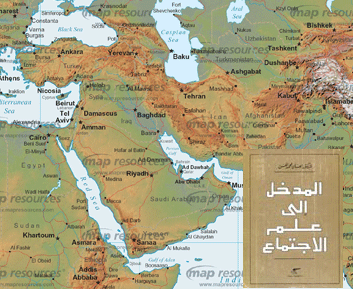
Note: The following is an excerpt from my Islam Obscured (New York: Palgrave, 2005, 137-138). I invite comments from both sociologists and anthropologists to help bridge the disciplinal gap in our joint interest and intellectual history over the Middle East.]
What is the difference between the anthropology of Islam and the sociology of Islam?
It is the character of lived experience I want to explore, not the nature of man. Michael Jackson (the ethnographer)
Whether or not an approach to religion is anthropological or sociological is a bit of a red herring. To a certain extent the answer is as trite as the discipline in which a researcher has been trained. But the interchange of labels is too rampant to be dismissed as simple cross-border interchange. Consider that French scholar Jean-Pierre Digard provides “perspectives anthropologiques†in a French journal of “sociologie,†while calling what he does “ethnologie.†In France Jacques Berque and Pierre Bourdieu teach “sociologie.” In Britain a number of social anthropologists regard what they do as a type of sociology, a notable example being Ernest Gellner. Since Gellner was trained as a philosopher and harbored lifelong suspicions of any notion that could be called Wittgensteinian, I suppose one category is as good for him as another. American academics are generally more disciplined. Clifford Geertz is an unabashed anthropologist, although he relies to a great extent on sociologists like Weber and Parsons. Even in formal ethnographies, the bread and butter of anthropological communication, the distinction can be fuzzy. Dale Eickelman, who conducted an ethnographic study of a pilgrimage center in Boujad, Morocco, identified his primary goal as making “sociological sense.†Given that most readers have a relatively clear idea of what sociology is about but little knowledge of what anthropologists do, the word choice may in fact be pragmatic rather than programmatic.
Introductory textbooks teach either anthropology or sociology, even though professors of each often draw on both disciplines in their assigned readings. In crude terms, anthropologists are usually associated with doing research in exotic venues and sociologists are more likely to hang around institutions and hand out complicated surveys that require a knowledge of statistics to decipher. Robert Hefner, for example, notes that “Islam†was the focus of sociologists in Indonesia before the late 1970s; anthropologists dealt with the peripherals. Thus, an anthropologist must do ethnography by living in an Islamic context, while a sociologist could just find the university library and play with data sets. Neither type of social scientist, it should be stressed, habitually spends times with indigenous texts, apart from an over-appreciation of the “sociological†demeanor of someone like Ibn Khaldun.
Who has the advantage? A specialist in Religious Studies or History would say neither. The choice of theory and method–a very wide selection indeed at the start of the third millennium–depends to a large extent on the questions being asked. Let us say the subject is the education of Muslims in religious schools in Pakistan. An anthropologist would likely apply for funding to go to a Pakistani village or town to observe behavior in schools, talk to the people involved on a daily basis and conduct informal interviews. A sociologist might gravitate more to the demographic statistics gathered by the government on pupils and teachers, create a survey questionnaire and analyze the institutional structure. Meanwhile, the Religious Historian would rightly inquire, “But can you actually read in the original what the students are reading and comparatively trace the content through the textual tradition?†The issue should not be who would achieve a “better†understanding, given the obvious limitations in specialized training, but how the available tools could be applied and adapted by an individual scholar.
The terminological confusion is compounded by that fact that a non-theological, or at least non-exegetical, study of religion is commonly labeled “sociology,†even by anthropologists. I suspect this is due in large part to the sociological credentials of scholars like Durkheim and Weber, who are as likely to be read by anthropologists as by someone trained specifically in the modern discipline of sociology. Marx himself should be included in this intellectual trajectory, although reducing his meager contributions to the study of religion as “sociological†seems as uneconomical as it does Whiggishly self-serving. As Talal Asad has warned, there is a danger in applying indiscriminately to Islam such widely distributed concepts as Durkheim’s sacred and profane or Weber’s ideal types. The issue is not how useful such concepts could be, but the need to recognize the cultural specificity of the contexts to which they are commonly made. There is so much debate about the methodological problems in past sociological models of religion that borrowing contested terms may simply beg the theoretical questions. Arguing about religion, it might be said, readily becomes the opiate of social scientists, whatever their formal training.